#keepitdown
#keepitdown
BuzzFeed produced an excellent, graphically pleasing look at Ramadan at places around the world. I wish they had posted a picture of American Muslims celebrating Ramadan, but nevertheless here’s their piece
TURKEY
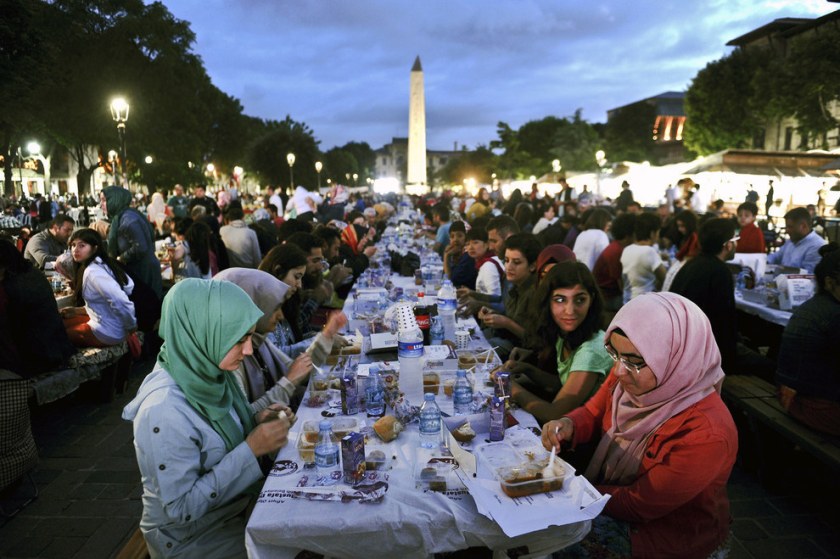
INDONESIA

CHINA
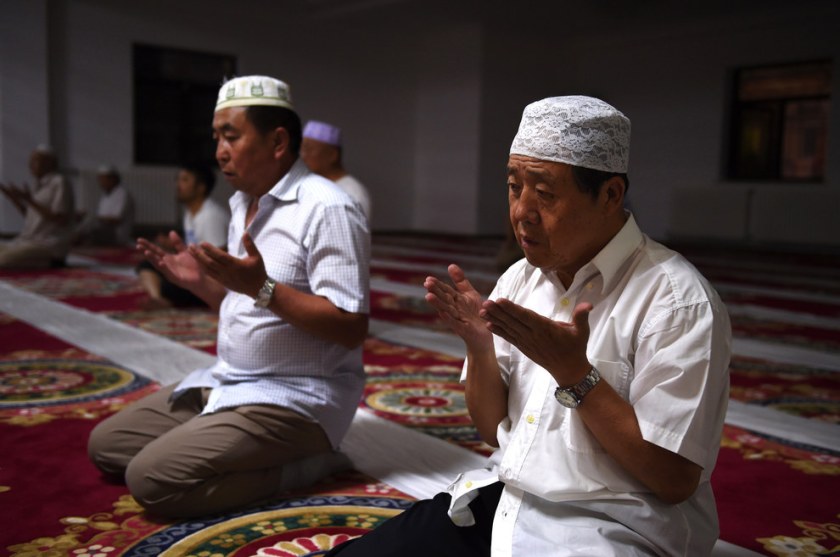
ENGLAND
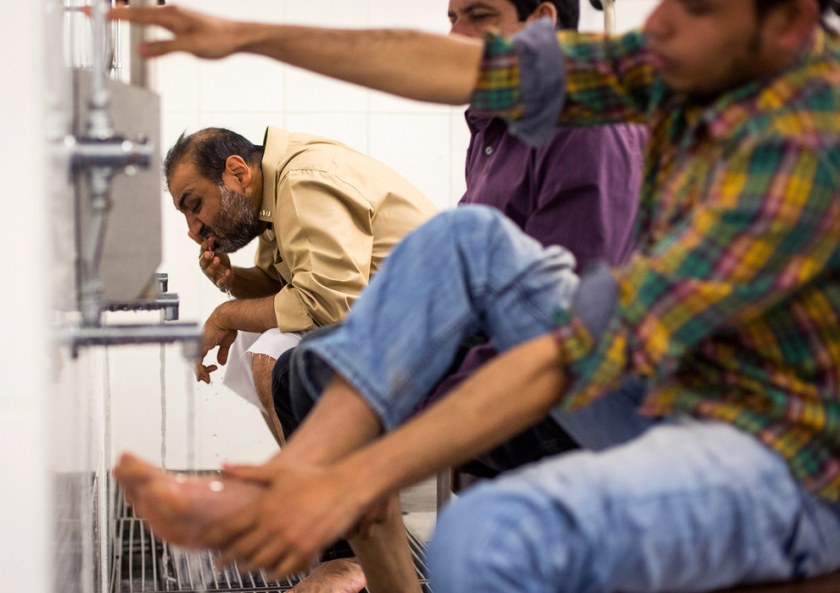
JERUSALEM
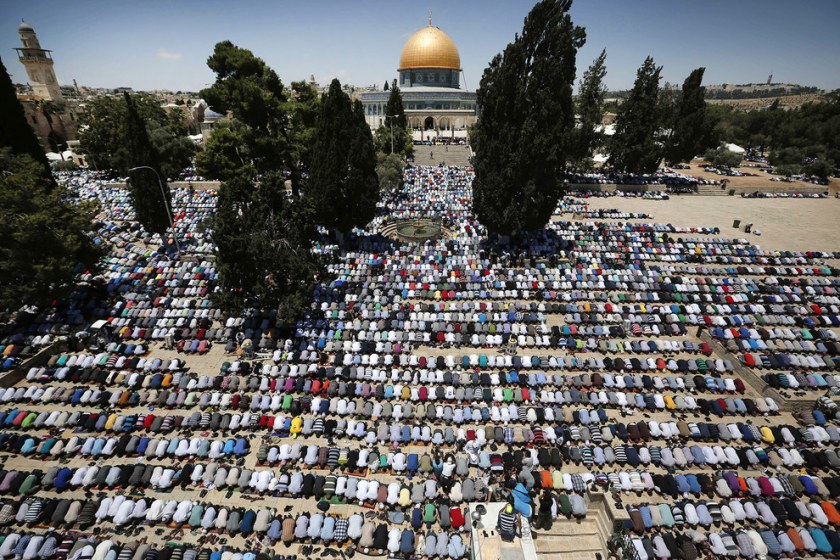
KENYA
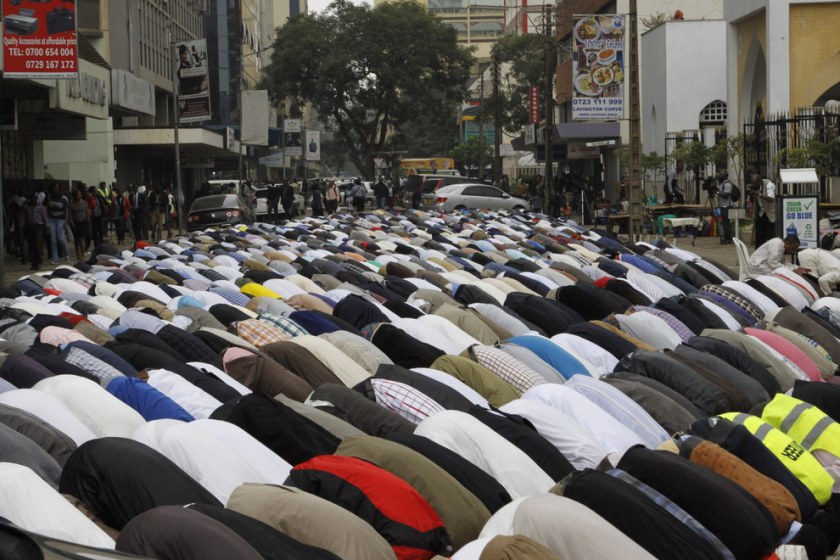
PATTANI
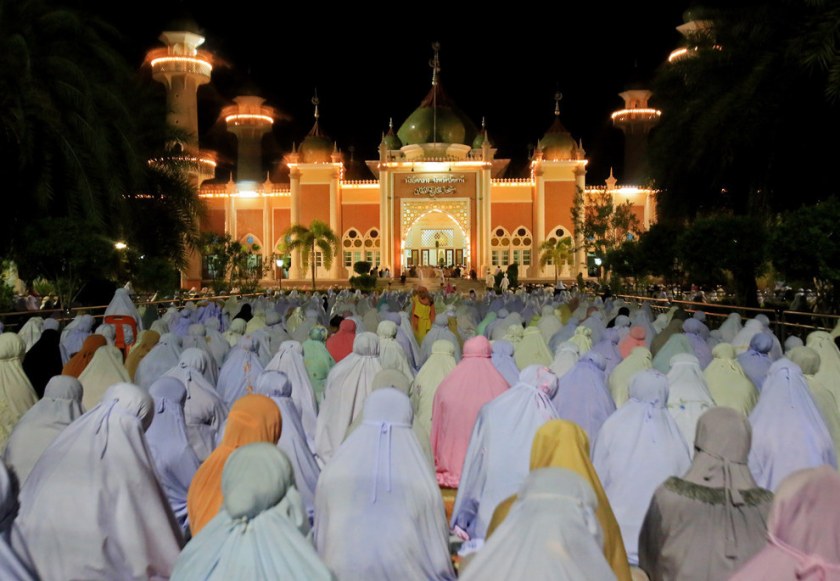
PAKISTAN

INDIA

AFGHANISTAN
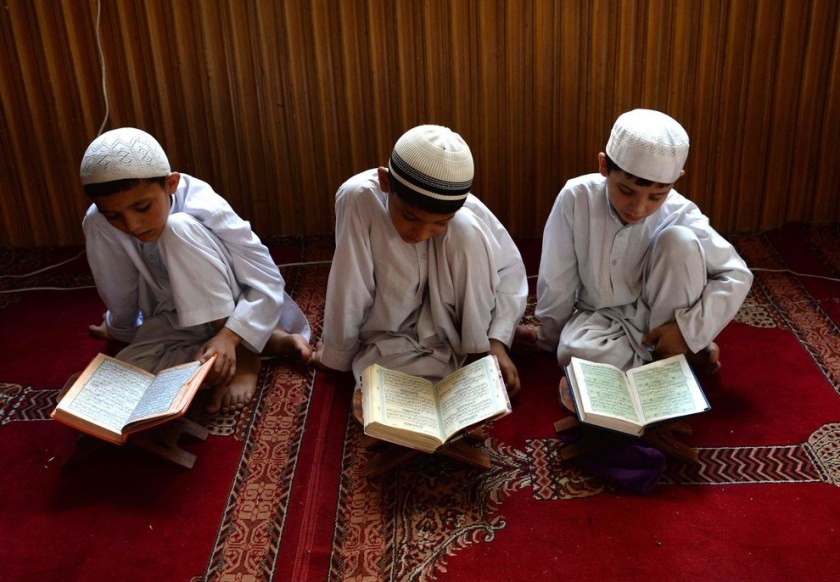
MALAYSIA

BANGLADESH

SRINAGAR
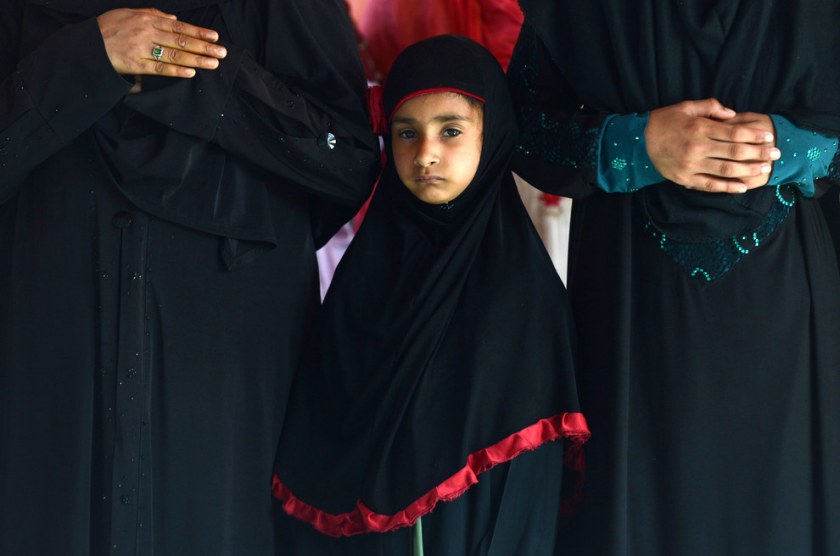
PHILLIPINES
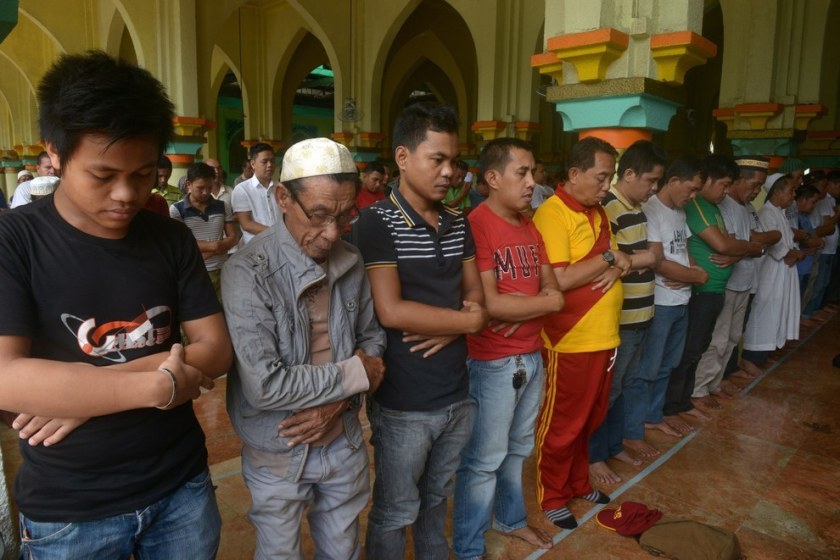
LEBANON
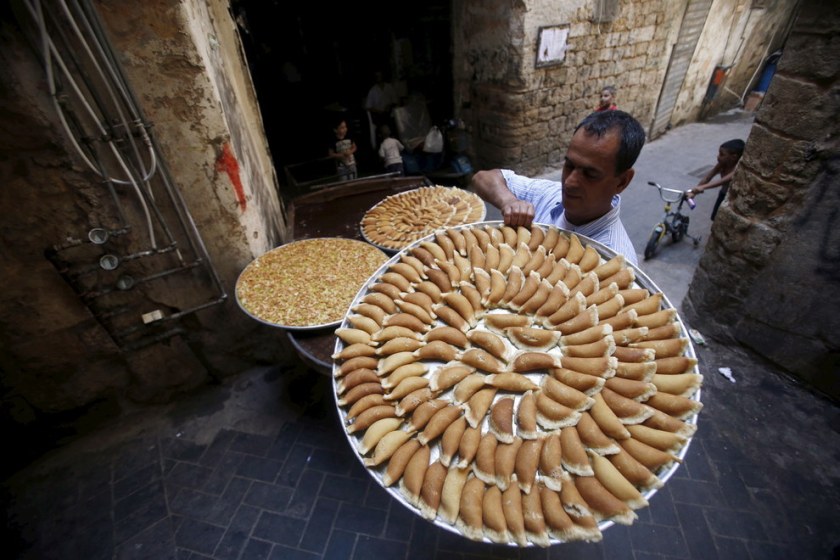
GAZA

IRAQ
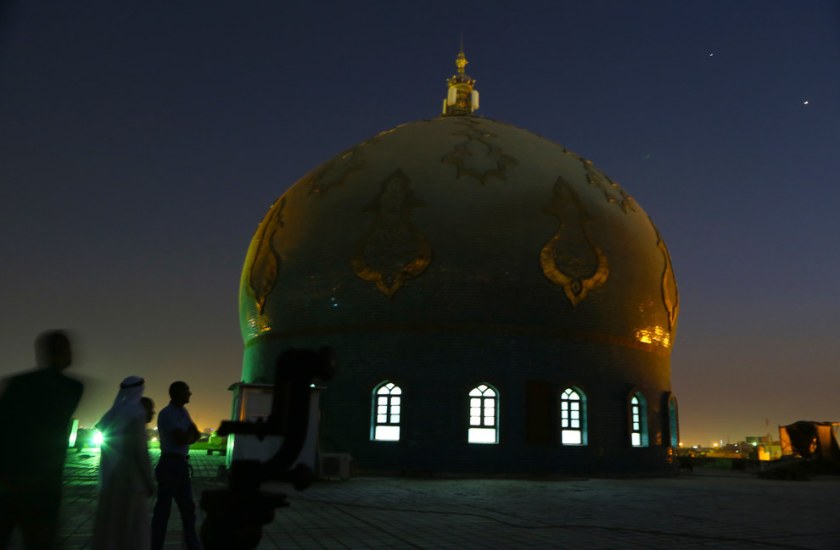
BOSNIA
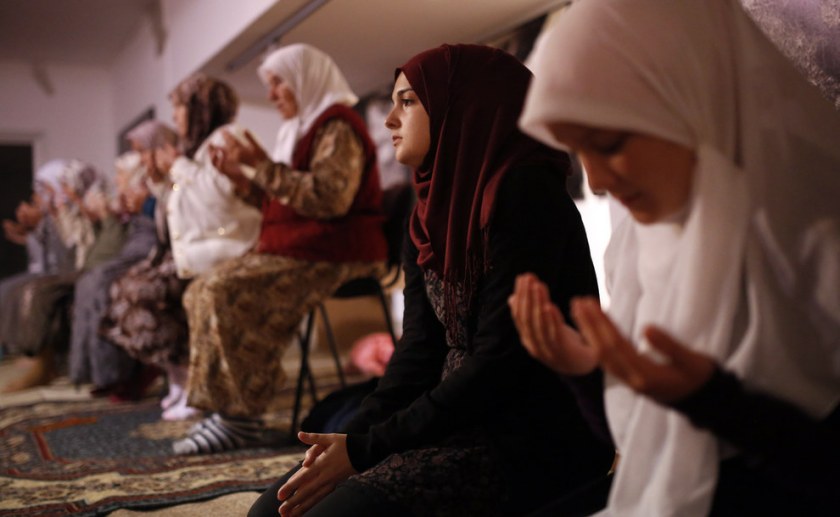
MYANMAR

SINGAPORE

GAZA

TUNISIA

ITALY

PAKISTAN

NEPAL
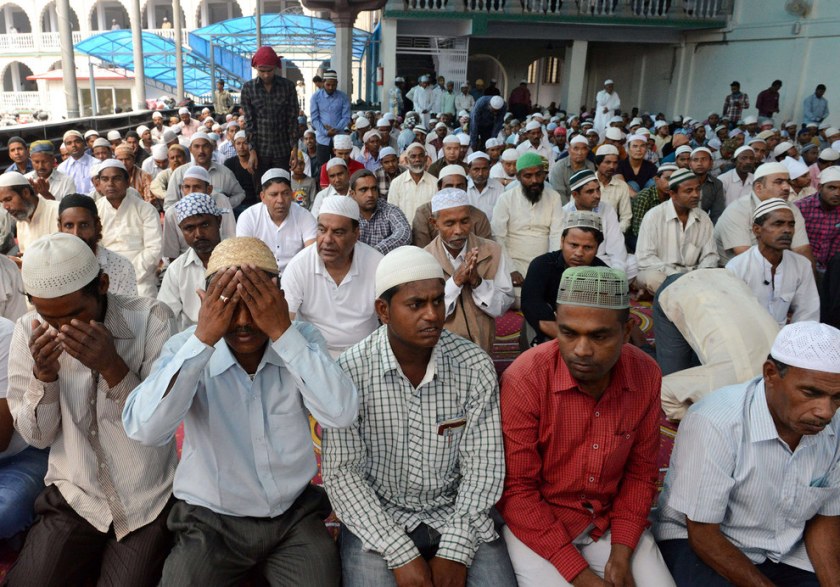
EGYPT
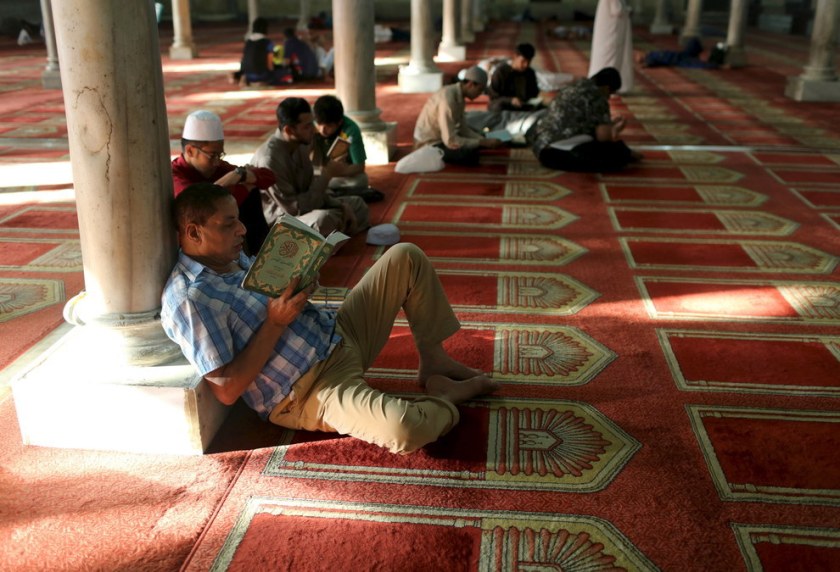
America’s terrorism against its people of color, even its Christian people of color continues. FoxNews always talks about the war on Christianity but neglects the war white America wages against black Christians. Now that we have a new name for political deaths, one that we can easily stick on people of color and especially Muslims, most white Americans want to deflect or mute the impact of the word terrorist when acts of violence are directed by them against ethnic and religious minorities. I’m glad to see in some circles that’s not the case here. 
The victims ranged in age from 26 to 87 years of age and included six women and three men. I’ll let this be the last word for now on this latest form of American terrorism

“The Speedy Trial Clause of the Sixth Amendment to the United States Constitution provides that “[i]n all criminal prosecutions, the accused shall enjoy the right to a speedy . . . trial . . . .”[1] The Clause protects the defendant from delay between the presentation of the indictment or similar charging instrument and the beginning of trial.” That didn’t happen for Kalief Browder who tragically ended his life this past Saturday because he languished in a New York City jail for three years. He’s one whose story was published; there may be more like him but because his life ended prematurely and due to his captivity and torture for a petty charge which he said he did not commit, here in its entirety is the story that brought his case to national attention. Fix this America!
Before the Law
A boy was accused of taking a backpack. The courts took the next three years of his life.
BY JENNIFER GONNERMAN
In the early hours of Saturday, May 15, 2010, ten days before his seventeenth birthday, Kalief Browder and a friend were returning home from a party in the Belmont section of the Bronx. They walked along Arthur Avenue, the main street of Little Italy, past bakeries and cafés with their metal shutters pulled down for the night. As they passed East 186th Street, Browder saw a police car driving toward them. More squad cars arrived, and soon Browder and his friend found themselves squinting in the glare of a police spotlight. An officer said that a man had just reported that they had robbed him. “I didn’t rob anybody,” Browder replied. “You can check my pockets.”
The officers searched him and his friend but found nothing. As Browder recalls, one of the officers walked back to his car, where the alleged victim was, and returned with a new story: the man said that they had robbed him not that night but two weeks earlier. The police handcuffed the teens and pressed them into the back of a squad car. “What am I being charged for?” Browder asked. “I didn’t do anything!” He remembers an officer telling them, “We’re just going to take you to the precinct. Most likely you can go home.” Browder whispered to his friend, “Are you sure you didn’t do anything?” His friend insisted that he hadn’t.
At the Forty-eighth Precinct, the pair were fingerprinted and locked in a holding cell. A few hours later, when an officer opened the door, Browder jumped up: “I can leave now?” Instead, the teens were taken to Central Booking at the Bronx County Criminal Court.Browder had already had a few run-ins with the police, including an incident eight months earlier, when an officer reported seeing him take a delivery truck for a joyride and crash into a parked car. Browder was charged with grand larceny. He told me that his friends drove the truck and that he had only watched, but he figured that he had no defense, and so he pleaded guilty. The judge gave him probation and “youthful offender” status, which insured that he wouldn’t have a criminal record.
Late on Saturday, seventeen hours after the police picked Browder up, an officer and a prosecutor interrogated him, and he again maintained his innocence. The next day, he was led into a courtroom, where he learned that he had been charged with robbery, grand larceny, and assault. The judge released his friend, permitting him to remain free while the case moved through the courts. But, because Browder was still on probation, the judge ordered him to be held and set bail at three thousand dollars. The amount was out of reach for his family, and soon Browder found himself aboard a Department of Correction bus. He fought back panic, he told me later. Staring through the grating on the bus window, he watched the Bronx disappear. Soon, there was water on either side as the bus made its way across a long, narrow bridge to Rikers Island.
Of the eight million people living in New York City, some eleven thousand are confined in the city’s jails on any given day, most of them on Rikers, a four-hundred-acre island in the East River, between Queens and the Bronx. New Yorkers who have never visited often think of Rikers as a single, terrifying building, but the island has ten jails—eight for men, one for women, and one so decrepit that it hasn’t housed anyone since 2000.
Male adolescents are confined in the Robert N. Davoren Center—known as R.N.D.C. When Browder arrived, the jail held some six hundred boys, aged sixteen to eighteen. Conditions there are notoriously grim. In August of this year, a report by the U.S. Attorney for the Southern District of New York described R.N.D.C. as a place with a “deep-seated culture of violence,” where attacks by officers and among inmates are rampant. The report featured a list of inmate injuries: “broken jaws, broken orbital bones, broken noses, long bone fractures, and lacerations requiring stitches.”
Browder’s family could not afford to hire an attorney, so the judge appointed a lawyer named Brendan O’Meara to represent him. Browder told O’Meara that he was innocent and assumed that his case would conclude quickly. Even the assistant district attorney handling the prosecution later acknowledged in court papers that it was a “relatively straightforward case.” There weren’t hours of wiretaps or piles of complicated evidence to sift through; there was just the memory of one alleged victim. But Browder had entered the legal system through the Bronx criminal courts, which are chronically overwhelmed. Last year, the Times, in an extended exposé, described them as “crippled” and among the most backlogged in the country. One reason is budgetary. There are not nearly enough judges and court staff to handle the workload; in 2010, Browder’s case was one of five thousand six hundred and ninety-five felonies that the Bronx District Attorney’s office prosecuted. The problem is compounded by defense attorneys who drag out cases to improve their odds of winning, judges who permit endless adjournments, prosecutors who are perpetually unprepared. Although the Sixth Amendment guarantees “the right to a speedy and public trial,” in the Bronx the concept of speedy justice barely exists.
For as long as Browder could remember, he had lived in the same place, a two-story brick house near the Bronx Zoo. He was the youngest of seven siblings; except for the oldest two, all the children were adopted, and the mother fostered other children as well. “Kalief was the last brought into the family,” an older brother told me. “By the time it came to Kalief, my mom had already raised—in foster care or adoption—a total of thirty-four kids.” Kalief was the smallest, he recalled, “so my mom called him Peanut.”As a child, Browder loved Pokemon, the W.W.E., free Wednesdays at the Bronx Zoo, and mimicking his brother’s workout routine. “At six years old, he had an eight-pack,” his brother said. When Browder was ten, their father, who worked as a subway cleaner, moved out, though he continued to help support the family.
For high school, Browder went to the small, progressive New Day Academy. A former staff member remembered him as a “fun guy,” the type of kid others wanted to be around. Occasionally, he would grab a hall pass, sneak into a friend’s classroom, and stay until the teacher caught on. He told me that his report cards were full of C’s, but the staff member I spoke to said, “I thought he was very smart.”
Inside R.N.D.C., Browder soon realized that he was not going to make many friends. He was assigned to a dorm where about fifty teen-age boys slept in an open room, each with a plastic bucket to store his possessions in. “Their conversations bored me,” he told me. As far as he could tell, the other inmates were interested only in “crimes they committed and girls that they did.” When Browder asked a guard how inmates were supposed to get their clothes cleaned, he was told that they had to wash them themselves. He thought this was a joke until he noticed other inmates scrubbing their clothes by hand, using their bucket and jailhouse soap. After he did the same and hung his wet clothes on the rail of his bed, he wound up with brown rust stains on his white T-shirt, his socks, and his boxers. That day, he told himself, “I don’t know how I’m going to live in this place.”
Browder’s mother visited every weekend. In the visiting room, he would hand her his dirty clothes and get a stack of freshly laundered clothes in return. She also put money in a jail commissary account for him, so he could buy snacks. He knew that such privileges made him a target for his fellow-prisoners, who would take any opportunity to empty someone else’s bucket of snacks and clothes, so he slept with his head off the side of his bed, atop his bucket. To survive inside R.N.D.C., he decided that the best strategy was to keep to himself and to work out. Before Rikers, he told me, “every here and there I did a couple pullups or pushups. When I went in there, that’s when I decided I wanted to get big.”
The dayroom was ruled over by a gang leader and his friends, who controlled inmates’ access to the prison phones and dictated who could sit on a bench to watch TV and who had to sit on the floor. “A lot of times, I’d say, ‘I’m not sitting on the floor,’ ” Browder said. “And then they’ll come with five or six dudes. They’d swing on me. I’d have to fight back.” There was no escape, no protection, and a suspicion that some of the guards had an agreement with the gang members.
Browder told me that, one night soon after he arrived, a group of guards lined him and several other inmates up against a wall, trying to figure out who had been responsible for an earlier fight. “They’re talking to us about why did we jump these guys,” he said. “And as they’re talking they’re punching us one by one.” Browder said that he had nothing to do with the fight, but still the officers beat him; the other inmates endured much worse. “Their noses were leaking, their faces were bloody, their eyes were swollen,” he said. Afterward, the officers gave the teens a choice: go to the medical clinic or go back to bed. But they made it clear that, if the inmates went to the clinic and told the medical staff what had happened, they would write up charges against them, and get them sent to solitary confinement. “I just told them I’ll act like nothing happened,” Browder said. “So they didn’t send us to the clinic; they didn’t write anything up; they just sent us back.” The Department of Correction refused to respond to these allegations, or to answer any questions about Browder’s stay on Rikers. But the recent U.S. Attorney’s report about R.N.D.C. recounts many instances in which officers pressured inmates not to report beatings—to “hold it down,” in Rikers parlance.
On the morning of July 28, 2010, Browder was awakened at around half past four. He was handcuffed to another inmate and herded onto a bus with a group of other prisoners. At the Bronx County Hall of Justice, they spent the day in a basement holding pen, each waiting for his chance to see a judge. When Browder’s turn came, an officer led him into a courtroom and he caught a glimpse of his mother in the spectator area. Seventy-four days had passed since his arrest. Already he had missed his seventeenth birthday, the end of his sophomore year, and half the summer.A grand jury had voted to indict Browder. The criminal complaint alleged that he and his friend had robbed a Mexican immigrant named Roberto Bautista—pursuing him, pushing him against a fence, and taking his backpack. Bautista told the police that his backpack contained a credit card, a debit card, a digital camera, an iPod Touch, and seven hundred dollars. Browder was also accused of punching Bautista in the face.
A clerk read out the charges—“Robbery in the second degree and other crimes”—and asked Browder, “How do you plead, sir, guilty or not guilty?”
“Not guilty,” Browder said.
An officer escorted him out of the courtroom and back downstairs to return to Rikers. It no longer mattered whether his mother could find the money to bail him out. The Department of Probation had filed a “violation of probation” against him—standard procedure when someone on probation is indicted on a new violent felony—and the judge had remanded him without bail.
Browder repeatedly told O’Meara, his court-appointed lawyer, that he would never plead guilty and that he wanted to go to trial. O’Meara assumed that his courtroom defense would be “Listen, they got the wrong kid.” After all, the accusation had been made a week or two after the alleged robbery, and the victim had later changed his mind about when it occurred. (The original police report said “on or about May 2,” but Bautista later told a detective that it happened on May 8th.)
With each day he spent in jail, Browder imagined that he was getting closer to trial. Many states have so-called speedy-trial laws, which require trials to start within a certain time frame. New York State’s version is slightly different, and is known as the “ready rule.” This rule stipulates that all felony cases (except homicides) must be ready for trial within six months of arraignment, or else the charges can be dismissed. In practice, however, this time limit is subject to technicalities. The clock stops for many reasons—for example, when defense attorneys submit motions before trial—so that the amount of time that is officially held to have elapsed can be wildly different from the amount of time that really has. In 2011, seventy-four per cent of felony cases in the Bronx were older than six months.
In order for a trial to start, both the defense attorney and the prosecutor have to declare that they are ready; the court clerk then searches for a trial judge who is free and transfers the case, and jury selection can begin. Not long after Browder was indicted, an assistant district attorney sent the court a “Notice of Readiness,” stating that “the People are ready for trial.” The case was put on the calendar for possible trial on December 10th, but it did not start that day. On January 28, 2011, Browder’s two-hundred-and-fifty-eighth day in jail, he was brought back to the courthouse once again. This time, the prosecutor said, “The People are not ready. We are requesting one week.” The next court date set by the judge—March 9th—was not one week away but six. As it happened, Browder didn’t go to trial anytime that year. An index card in the court file explains:
June 23, 2011: People not ready, request 1 week.
August 24, 2011: People not ready, request 1 day.
November 4, 2011: People not ready, prosecutor on trial, request 2 weeks.
December 2, 2011: Prosecutor on trial, request January 3rd.
The Bronx courts are so clogged that when a lawyer asks for a one-week adjournment the next court date usually doesn’t happen for six weeks or more. As long as a prosecutor has filed a Notice of Readiness, however, delays caused by court congestion don’t count toward the number of days that are officially held to have elapsed. Every time a prosecutor stood before a judge in Browder’s case, requested a one-week adjournment, and got six weeks instead, this counted as only one week against the six-month deadline. Meanwhile, Browder remained on Rikers, where six weeks still felt like six weeks—and often much longer.Like many defendants with court-appointed lawyers, Browder thought his attorney was not doing enough to help him. O’Meara, who works mostly in the Bronx and in Westchester County, never made the trip out to Rikers to see him, since a visit there can devour at least half a day. To avoid this trek, some lawyers set up video conferences at the Bronx courthouse with their clients who are in jail. O’Meara says he’s “pretty sure” he did this with Browder, but Browder says he never did. Court papers suggest a lawyer in a hurry: in the fall of 2010, O’Meara filed a notice with the court in which he mistakenly wrote that he would soon be making a motion on Browder’s case in “Westchester County Court,” instead of in the Bronx.
New York City pays lawyers like O’Meara (known locally as “18-B attorneys”) seventy-five dollars an hour for a felony case, sixty dollars for a misdemeanor. O’Meara handles all types of cases, from misdemeanors to homicides. When I met him, earlier this year, he was eating a hamburger and drinking coffee at a diner in Brooklyn after an appearance at a courthouse there. He was about to take the subway back to the Bronx, and his briefcase was bulging with papers. He told me that Browder, compared with some of his other clients, “was quiet, respectful—he wasn’t rude.” He also noted that, as the months passed, his client looked “tougher and bigger.”
Most of the time, however, Browder had no direct contact with O’Meara; the few times he tried to phone him, he couldn’t get through, so he was dependent on his mother to talk to O’Meara on his behalf. Every time Browder got the chance, he asked O’Meara the same question: “Can you get me out?” O’Meara says that he made multiple bail applications on his client’s behalf, but was unsuccessful because of the violation of probation. Meanwhile, other inmates advised Browder to tell his lawyer to file a speedy-trial motion—a motion to dismiss the case, because it hadn’t been brought to trial within six months. But, with so many one-week requests that had turned into six-week delays, Browder had yet to reach the six-month mark.
For a defendant who is in jail, the more a case drags on the greater the pressure to give up and plead guilty. By early 2012, prosecutors had offered Browder a deal—three and a half years in prison in exchange for a guilty plea. He refused. “I want to go to trial,” he told O’Meara, even though he knew that if he lost he could get up to fifteen years in state prison. Stories circulate on Rikers about inmates who plead guilty to crimes they didn’t commit just to put an end to their ordeal, but Browder was determined to get his day in court. He had no idea how rare trials actually are. In 2011, in the Bronx, only a hundred and sixty-five felony cases went to trial; in three thousand nine hundred and ninety-one cases, the defendant pleaded guilty.
Not long after arriving on Rikers, Browder made his first trip to solitary confinement. It lasted about two weeks, he recalls, and followed a scuffle with another inmate. “He was throwing shoes at people—I told him to stop,” Browder said. “I actually took his sneaker and I threw it, and he got mad. He swung on me, and we started fighting.” Browder was placed in shackles and transferred by bus to the Central Punitive Segregation Unit, which everyone on Rikers calls the Bing. Housed in one of the island’s newer jails, the Bing has four hundred cells, each about twelve feet by seven.
In recent years, the use of solitary confinement has spread in New York’s jails. Between 2007 and mid-2013, the total number of solitary-confinement beds on Rikers increased by more than sixty per cent, and a report last fall found that nearly twenty-seven per cent of the adolescent inmates were in solitary. “I think the department became severely addicted to solitary confinement,” Daniel Selling, who served as the executive director of mental health for New York City’s jails, told me in April; he had quit his job two weeks earlier. “It’s a way to control an environment that feels out of control—lock people in their cell,” he said. “Adolescents can’t handle it. Nobody could handle that.” (In March, Mayor Bill de Blasio appointed a new jails commissioner, Joseph Ponte, who promised to “end the culture of excessive solitary confinement.”)For Browder, this was the first of several trips to the Bing. As he soon discovered, a prisoner there doesn’t leave his cell except to go to rec, the shower, the visit room, the medical clinic, or court; whenever he does leave, he is handcuffed and strip-searched. To pass the time, Browder read magazines—XXL, Sports Illustrated, Hip Hop Weekly—and street novels handed on by other inmates; one was Sister Souljah’s “Midnight.” He’d always preferred video games, but he told me, “I feel like I broke myself into books through street novels.” He moved on to more demanding reading and said that his favorite book was Craig Unger’s “House of Bush, House of Saud.”
Summer is the worst time of year to be stuck in the Bing, since the cells lack air-conditioning. In the hope of feeling a breeze, Browder would sleep with the window open, only to be awakened at 5 A.M., when the cell filled with the roar of planes taking off from LaGuardia, one of whose runways is less than three hundred feet from Rikers. He would spend all day smelling his own sweat and counting the hours until his next shower. He thought about the places he would have been visiting if he were not spending the summer in jail: Mapes Pool, Coney Island, Six Flags. One day, when he called home to talk to his mother—he was allowed one six-minute call a day while in solitary—he could make out the familiar jingle of an ice-cream truck in the background.
There hadn’t been much to do at R.N.D.C., but at least there was school—classrooms where the inmates were supposed to be taken every day, to study for a G.E.D. or a high-school diploma. The Bing had only “cell study”: a correction officer slid work sheets under the door in the morning, collected them a few days later, and, eventually, returned them with a teacher’s marks. Some inmates never bothered to fill in the work sheets, but Browder told himself, “I’m already in jail—I might as well keep trying to do something.” There were times, however, when nobody came by to collect the work sheets on the day he’d been told they were due. If Browder saw a captain walk by through the small window in his door, he would shout, “Where is the school correction officer to pick up the work?”
Near the end of 2010, Browder returned to the Bing; he was there for about ten months, through the summer of 2011. He recalls that he got sent there initially after another fight. (Once an inmate is in solitary, further minor infractions can extend his stay.) When Browder first went to Rikers, his brother had advised him to get himself sent to solitary whenever he felt at risk from other inmates. “I told him, ‘When you get into a house and you don’t feel safe, do whatever you have to to get out,’ ” the brother said. “ ‘It’s better than coming home with a slice on your face.’ ”
Even in solitary, however, violence was a threat. Verbal spats with officers could escalate. At one point, Browder said, “I had words with a correction officer, and he told me he wanted to fight. That was his way of handling it.” He’d already seen the officer challenge other inmates to fights in the shower, where there are no surveillance cameras. “So I agreed to it; I said, ‘I’ll fight you.’ ” The next day, the officer came to escort him to the shower, but before they even got there, he said, the officer knocked him down: “He put his forearm on my face, and my face was on the floor, and he just started punching me in the leg.” Browder isn’t the first inmate to make such an allegation; the U.S. Attorney’s report described similar incidents.
Browder’s brother reconsidered his advice when he saw him in the Bing visiting area. For one thing, he says, Browder was losing weight. “Several times when I visited him, he said, ‘They’re not feeding me,’ ” the brother told me. “He definitely looked really skinny.” In solitary, food arrived through a slot in the cell door three times a day. For a growing teen-ager, the portions were never big enough, and in solitary Browder couldn’t supplement the rations with snacks bought at the commissary. He took to begging the officers for leftovers: “Can I get that bread?” Sometimes they would slip him an extra slice or two; often, they refused.Browder’s brother also noticed a growing tendency toward despair. When Browder talked about his case, he was “strong, adamant: ‘No, they can’t do this to me!’ ” But, when the conversation turned to life in jail, “it’s a totally different personality, which is depressed. He’s, like, ‘I don’t know how long I can take this.’ ”
Browder got out of the Bing in the fall of 2011, but by the end of the year he was back—after yet another fight, he says. On the night of February 8, 2012—his six-hundred-and-thirty-fourth day on Rikers—he said to himself, “I can’t take it anymore. I give up.” That night, he tore his bedsheet into strips, tied them together to make a noose, attached it to the light fixture, and tried to hang himself. He was taken to the clinic, then returned to solitary. Browder told me that his sheets, magazines, and clothes were removed—everything except his white plastic bucket.
On February 17th, he was shuttled to the courthouse once again, but this time he was not brought up from the court pen in time to hear his case called. (“I’ll waive his appearance for today’s purposes,” his lawyer told the judge.) For more than a year, he had heard various excuses about why his trial had to be delayed, among them that the prosecutor assigned to the case was on trial elsewhere, was on jury duty, or, as he once told the judge, had “conflicts in my schedule.” If Browder had been in the courtroom on this day, he would have heard a prosecutor offer a new excuse: “Your Honor, the assigned assistant is currently on vacation.” The prosecutor asked for a five-day adjournment; Browder’s lawyer requested March 16th, and the judge scheduled the next court date for then.
The following night, in his solitary cell on Rikers, Browder shattered his plastic bucket by stomping on it, then picked up a piece, sharpened it, and began sawing his wrist. He was stopped after an officer saw him through the cell window and intervened.
Browder was still on Rikers Island in June of 2012, when his high-school classmates collected their diplomas, and in September, when some of them enrolled in college. In the fall, prosecutors offered him a new deal: if he pleaded guilty, he’d get two and a half years in prison, which meant that, with time served, he could go home soon. “Ninety-nine out of a hundred would take the offer that gets you out of jail,” O’Meara told me. “He just said, ‘Nah, I’m not taking it.’ He didn’t flinch. Never talked about it. He was not taking a plea.”
Meanwhile, Browder kept travelling from Rikers to the Bronx courthouse and back again, shuttling between two of New York City’s most dysfunctional bureaucracies, each system exacerbating the flaws of the other. With every trip Browder made to the courthouse, another line was added to a growing stack of index cards kept in the court file:
June 29, 2012: People not ready, request one week.
September 28, 2012: People not ready, request two weeks.
November 2, 2012: People not ready, request one week.
December 14, 2012: People not ready, request one week.
By the end of 2012, Browder had been in jail for nine hundred and sixty-one days and had stood before eight different judges. He always maintained his composure, never berating his attorney or yelling protests in court. O’Meara was impressed by his control. “I can’t imagine most people sitting in there for three years and not becoming very upset with their attorney,” he says. “He just never complained to me.” Privately, though, Browder was angry. About the prosecutors, he would tell himself, “These guys are just playing with my case.”On March 13, 2013, Browder appeared before a new judge, Patricia M. DiMango, who had been transferred from Brooklyn as part of a larger effort to tackle the Bronx’s backlog. She was known for her no-nonsense style when dealing with defendants; at the Brooklyn courthouse, she was referred to as Judge Judy. (As it happens, this year she became a judge on “Hot Bench,” a new courtroom TV show created by Judge Judy.) In the Bronx, DiMango’s job was to review cases and clear them: by getting weak cases dismissed, extracting guilty pleas from defendants, or referring cases to trial in another courtroom. At the start of 2013, there were nine hundred and fifty-two felony cases in the Bronx, including Browder’s, that were more than two years old. In the next twelve months, DiMango disposed of a thousand cases, some as old as five years.
Judge DiMango explained to Browder, “If you go to trial and lose, you could get up to fifteen.” Then she offered him an even more tempting deal: plead guilty to two misdemeanors—the equivalent of sixteen months in jail—and go home now, on the time already served. “If you want that, I will do that today,” DiMango said. “I could sentence you today. . . . It’s up to you.”“I’m all right,” Browder said. “I did not do it. I’m all right.”
“You are all right?” DiMango said.
“Yes,” he said. “I want to go to trial.”
Back at Rikers, other prisoners were stunned. “You’re bugging,” they told him. “You’re stupid. If that was me, I would’ve said I did it and went home.” Browder knew that it was a gamble; even though he was innocent, he could lose at trial. “I used to go to my cell and lie down and think, like, Maybe I am crazy; maybe I am going too far,” he recalled. “But I just did what I thought was right.”
On May 29th, the thirty-first court date on Browder’s case, there was another development. DiMango peered down from the bench. “The District Attorney is really in a position right now where they cannot proceed,” she said. “It is their intention to dismiss the case.” She explained that this could not officially happen until the next court date, which ended up being a week later. “I will release you today, but you have to come back here on time without any new cases,” she said. “Do you think you can do that, Mr. Browder?”
“Yes,” he said.
Browder could not believe what was happening. His battle to prove his innocence had ended. No trial, no jury, no verdict. An assistant district attorney filed a memo with the court explaining that Bautista, the man who had accused Browder, had gone back to Mexico. The District Attorney’s office had reached his brother in the Bronx and tried to arrange for him to return and testify, but then the office lost contact with the brother, too. “Without the Complainant, we are unable to meet our burden of proof at trial,” the prosecutor wrote.
Browder had to spend one more night on Rikers. By now, he had missed his junior year of high school, his senior year, graduation, the prom. He was no longer a teen-ager; four days earlier, he had turned twenty.
He didn’t know what time he would be released, so he told his mother not to bother picking him up. The next afternoon, he walked out of jail, a single thought in his mind: “I’m going home!” He took the bus to Queens Plaza, then two subways to the Bronx, and his euphoria began to dissipate. Being around so many people felt strange. Except for a few weeks, he had been in solitary confinement for the previous seventeen months.
After leaving Rikers, Browder moved back home, where his mother and two of his brothers were living. Everybody could see that he had changed. Most of the clothes in his bedroom no longer fit; he had grown an inch or two while he was away and had become brawnier. Many of his former pastimes—playing video games, watching movies, shooting hoops in the park—no longer engaged him. He preferred to spend time by himself, alone in his bedroom, with the door closed. Sometimes he found himself pacing, as he had done in solitary. When he saw old friends, he was reminded of their accomplishments and what he had not achieved: no high-school diploma, no job, no money, no apartment of his own.
Before he went to jail, he used to like sitting on his front steps with his friends, and when a group of attractive girls walked by he’d call out, “Hi. What are you doing? Where’s the party at? Can I go with you?” Now, if he managed to get a girl’s number, the first real conversation would always go the same way: she would ask him if he was in school or working, and he would feel his anxiety rise. Once he revealed that he was still living at home, without a job or a diploma, “they look at me like I ain’t worth nothing. Like I ain’t shit. It hurts to have people look at you like that.” He could explain that he’d been wrongfully arrested, but the truth felt too complicated, too raw and personal. “If I tell them the story, then I gotta hear a hundred questions,” he said. “It gets emotional for me. And those emotions I don’t feel comfortable with.”
Not long after Browder returned home, one of his relatives called an attorney named Paul V. Prestia and told him that Browder had spent three years on Rikers only to have his case dismissed. “Send him down,” Prestia said. A former prosecutor in Brooklyn, Prestia now has his own firm. On his office wall hangs a 2011 Post story about a Haitian chef from the Bronx who was mistakenly arrested for rape and spent eight days on Rikers; Prestia got the case dismissed.When Prestia first heard Browder’s story, he thought there must be a catch; even by the sorry standards of justice in the Bronx, the case was extreme. “It’s something that could’ve been tried in a court in a matter of days,” he told me. “I don’t know how each and every prosecutor who looked at this case continued to let this happen. It’s like Kalief Browder didn’t even exist.” Earlier this year, Prestia filed a suit on Browder’s behalf against the city, the N.Y.P.D., the Bronx District Attorney, and the Department of Correction.
Robert T. Johnson, the Bronx District Attorney, will not answer questions about Browder’s case, because, once the charges were dismissed, the court records were sealed. But recently when I asked him a general question about cases that drag on and on, he was quick to deflect blame. “These long delays—two, three years—they’re horrendous, but the D.A. is not really accountable for that kind of delay,” he said. His explanation was that either the case did not actually exceed the six-month speedy-trial deadline or the defense attorney failed to bring a speedy-trial motion.
Prestia, in his lawsuit, alleges “malicious prosecution,” charging that Johnson’s prosecutors were “representing to the court that they would be ‘ready’ for trial, when in fact, they never were.” Prestia said, “The million-dollar question is: When did they really know they didn’t have a witness? Did they really not know until 2013?” He suspects that, as he wrote in his complaint, they were “seeking long, undue adjournments of these cases to procure a guilty plea from plaintiff.” The city has denied all allegations of wrongdoing, and Johnson, when I asked about these accusations, said, “Certainly if there is something uncovered that we did wrong, I will deal with that here. But I don’t expect that to be the case.”
Prestia has represented many clients who were wrongfully arrested, but Browder’s story troubles him most deeply. “Kalief was deprived of his right to a fair and speedy trial, his education, and, I would even argue, his entire adolescence,” he says. “If you took a sixteen-year-old kid and locked him in a room for twenty-three hours, your son or daughter, you’d be arrested for endangering the welfare of a child.” Browder doesn’t know exactly how many days he was in solitary—and Rikers officials, citing pending litigation, won’t divulge any details about his stay—but he remembers that it was “about seven hundred, eight hundred.”
One day last November, six months after his release, Browder retreated to his bedroom with a steak knife, intending to slit his wrists. A friend happened to stop by, saw the knife, and grabbed it. When he left the house to find Browder’s mother, Browder tried to hang himself from a bannister. An ambulance rushed him to St. Barnabas Hospital, where he was admitted to the psychiatric ward. In his medical record, a social worker describes the suicide attempt as “serious.”
One afternoon this past spring, I sat with Browder in a quiet restaurant in lower Manhattan. He is five feet seven, with a high forehead, tired eyes, and a few wisps of hair above his upper lip. “Being home is way better than being in jail,” he told me. “But in my mind right now I feel like I’m still in jail, because I’m still feeling the side effects from what happened in there.”
When I first asked if I could interview him, he was reluctant, but eventually he agreed, and we met many times. We always met in downtown Manhattan, near Prestia’s office. He didn’t want to meet in the Bronx, and seemed to feel more comfortable speaking where nobody knew him. He almost always wore the same uniform: a hoodie with the hood pulled down; a pair of earbuds, one stuck in an ear and the other swinging free; rosary beads dangling from his neck—not because he is Catholic (his family are Jehovah’s Witnesses) but “for fashion,” he said. When I asked him about Rikers, he surprised me with his willingness to speak. At times, he seemed almost unable to stop, as if he had long been craving the chance to tell somebody about what he endured. Other times, though, the act of remembering seemed almost physically painful: he would fall silent, drop his gaze, and shake his head.
Ever since Browder left Rikers, he has tried to stay busy. He sat through G.E.D. prep classes, signed up for a computer course, searched for a job, and attended weekly counselling sessions. This past March, he learned that he had passed the G.E.D. on the first try. “I gained some of my pride back,” he told me. He landed a job as a security guard—not his dream position, but it would serve while he looked for something better. By coincidence, one of the places he was sent was St. Barnabas. On his second day there, he overheard some employees talking about him; somebody seemed to have figured out that he had been in the psychiatric ward. Soon afterward, with a vague explanation, he was fired.
Prestia helped him find a part-time job, working for a friend who runs a jewelry business in the same building as Prestia’s office, near Wall Street. On May 29th—four days after his twenty-first birthday, and a year to the day after DiMango told him that he would be set free—Browder stood on a sidewalk in front of a Chase bank, handing out flyers advertising the jewelry business. He told me that he liked Wall Street—being surrounded by people with briefcases and suits, everyone walking with a sense of purpose. “When I see professional people, I see myself,” he said. “I say, ‘I want to be like them.’ ”
Exactly how he would manage this he was not sure. Most days, the progress he had made since coming home did not feel like progress to him. “It’s been a year now, and I got a part-time job, and I got my G.E.D.,” he said. “But, when you think about it, that’s nothing. People tell me because I have this case against the city I’m all right. But I’m not all right. I’m messed up. I know that I might see some money from this case, but that’s not going to help me mentally. I’m mentally scarred right now. That’s how I feel. Because there are certain things that changed about me and they might not go back.”
This month, Browder started classes at Bronx Community College. But, even now, he thinks about Rikers every day. He says that his flashbacks to that time are becoming more frequent. Almost anything can trigger them. It might be the sight of a police cruiser or something more innocuous. When his mother cooks rice and chili, he says, he can’t help remembering the rice and chili he was fed on Rikers, and suddenly, in his mind, he is back in the Bing, recalling how hungry he was all the time, especially at night, when he’d have to wait twelve hours for his next meal.
Even with his friends, things aren’t the same. “I’m trying to break out of my shell, but I guess there is no shell. I guess this is just how I am—I’m just quiet and distant,” he says. “I don’t like being this way, but it’s just natural to me now.” Every night before he goes to sleep, he checks that every window in the house is locked. When he rides the subway, he often feels terrified. “I might be attacked; I might be robbed,” he says. “Because, believe me, in jail you know there’s all type of criminal stuff that goes on.” No matter how hard he tries, he cannot forget what he saw: inmates stealing from each other, officers attacking teens, blood on the dayroom floor. “Before I went to jail, I didn’t know about a lot of stuff, and, now that I’m aware, I’m paranoid,” he says. “I feel like I was robbed of my happiness.”
He was robbed. May he rest in peace.

Hands down, Jimmy Carter is the best American former president that this country has ever had. Perhaps being an ex-president makes it easier for him to say the things that really need to be said from the vantage point that office brings. He is no longer burdened with mass appeal for political purposes versus the reality of life in a diverse, large country such as America….yet he still finds a way to say the things that need to be said, that we as a country need to hear but yet not in a harsh, scathing way that evangelism often lends itself to. His latest pronouncements can be read here but this is the one quote I salute him for
The recent publicity about mistreatment of black people in the judicial and police realm has been a reminder that the dreams of the civil rights movement have not been realized. Many Americans still have racist tendencies or feelings of superiority to people of color.
Those feelings of superiority are now known as white privilege and Mr. Carter has put his hand on the crux of what is still ailing this country.
First there was this
Ms. Dawson an advisor at Kennesaw State University literally redefined harassment when she told  student, Kevin Bruce of the University that his sitting and waiting to talk someone about his classes was harassment. If you watched the video you heard her say that. She didn’t make the claim that the student was talking to anyone, catcalling, whistling, disrupting office work any of that, his merely sitting in office supplied furniture and waiting to see an available employee of the University was intimidating to Ms. Dawson. Kudos to Mr. Bruce who despite the dynamics, he a black male and Ms. Dawson a white female in the South never claimed it was about race but rather about an employee who acted unprofessionally.
student, Kevin Bruce of the University that his sitting and waiting to talk someone about his classes was harassment. If you watched the video you heard her say that. She didn’t make the claim that the student was talking to anyone, catcalling, whistling, disrupting office work any of that, his merely sitting in office supplied furniture and waiting to see an available employee of the University was intimidating to Ms. Dawson. Kudos to Mr. Bruce who despite the dynamics, he a black male and Ms. Dawson a white female in the South never claimed it was about race but rather about an employee who acted unprofessionally.
KSU saw it Bruce’s way
KSU says it is suspending Abby Dawson from her advising responsibilities at the Department of Exercise Science and Sports Management.
“It’s something that needed to be done,” said one senior, who said she also had Dawson as an adviser.
Dawson will be reassigned, and not permitted to advise students unless she completes new training.
“We have made it very clear to Ms. Dawson and her supervisors that the behavior she demonstrated on the video will not be tolerated; and while we have apologized to the student directly, we also want to publicly apologize for her behavior, which is not representative of KSU’s student-centered culture,” said Provost and Vice President of Academic Affairs Ken Harmon.
Harmon says they plan to reorganize their advising system and add more advisers to increase the adviser to student ratio.
“While we in no way condone Ms. Dawson’s actions, we also acknowledge that we need to make some changes in our advising structure to provide more training and support for our staff so that they are better equipped to help our students navigate their college experience,” said Harmon.
I applaud both Mr. Bruce and KSU for handling a delicate situation delicately. I hope Ms. Dawson gets the help she so clearly needs.
Steve King, (R.Iowa) has made an ass of himself yet again with his reflections on Islam and Muslims in America.
(R.Iowa) has made an ass of himself yet again with his reflections on Islam and Muslims in America.
“The president can dredge up his Crusader history and try to leverage that back against us to guilt us,” he (King) said, referring to President Obama’s remarks at the National Prayer Breakfast, “but what’s this discrimination that’s going on against Muslims in this country? I’m not seeing it. I mean, they’re beheading Christians on the shores of the Mediterranean Sea, and some people are speaking ill of that component. So where are the moderate Muslims speaking up?”
and as usual he and his ilk dredge up the ‘where are the Muslim’s condemnation’ of acts allegedly perpetrated by Muslims as a way of implying the silence of Muslims is their acquiescence towards acts of terror and bigotry. My response to King’s asinine innuendo is to ask ‘what happened to your Google’? For in making a few short keystrokes on his device he can find countless cries of Muslims denouncing criminality and terrorism committed worldwide. Either Mr. King is too lazy to search them out or is playing demagoguery to his base. In either case he is certainly not interested in any voice that would contradict his racist notions.
What King said and did is only noteworthy when juxtaposed with this headline where an official for
United Airlines apologizes to Tahera Ahmad, a Muslim passenger, for discriminatory behavior on the part of an airline employee.
While United did not operate the flight, Ms. Ahmad was our customer and we apologize to her for what occurred,” United spokesman Charles Hobart said in a statement. “United does not tolerate behavior that is discriminatory — or that appears to be discriminatory — against our customers or employees.
I guess Mr. King doesn’t know about this any more than he knows about Muslims who condemn acts of terrorism done by other Muslims. As America continues down its historic path it seems increasingly more interested in ignoring its problems of diversity and racism instead of embracing and solving them. Mr. King is just one more enabler on that trek……..don’t be fooled. We still have a problem and we need to fix it.